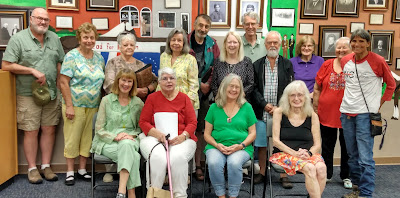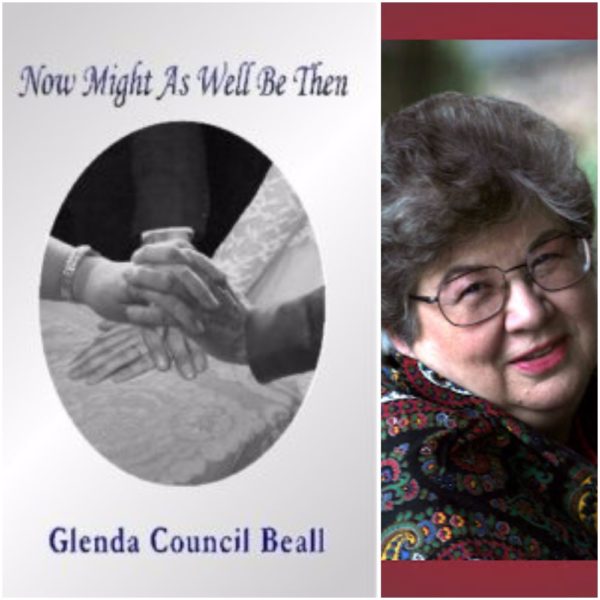One of the best poets I know is MAREN O. MITCHELL who is publishing her poems everywhere. The two below were recently published in the November issue of The Lake a UK publication.
As They Go, So Go We
Being dazzled by June bug iridescence, in June or any other
month, is beyond my recall, and at least six years have passed
since praying mantis youngsters climbed our garden plants
with their gravity-defying sticky feet. Now wasps only
build duplexes, a shadow of their former eave condos
that extended our roof line; hornets used to hang their mansions
in nearby trees, and invade the living room nightly through
a secret entrance. While outside, they would eye me, hover
close, their frequency never mistaken, as I pretended I neither
saw nor heard them, my only care the poem I was writing. Both
threats required diplomacy: move gently, (if at all), don't trust, pray
quietly. It must be ten years since snakes traveled from the forest
to give birth in our shaggy yard, and I barely remember the shadows
of turtles, their audacious road crossings, their compressed view
of life, and the slower snails, now only an occasional dot,
Buddhas on stems. After my ankles, yellow jackets would chase me
down mountains as if they knew I had to stay on the trail to get
home; fall spiders draped our fall house with softness to shelter egg
sacs, their plan for eternity. Yet, gnats still bite me with a dog-like
clamp down, as though they hold a grudge, and mosquito specters
I see too late still inject me with viruses and bacteria. But, most
upsetting, from bumble to sweat bees, (those little darlings who
spelunk into flowers and zap me as I deadhead), drop in less
and less often. It is getting lonely outside. I don’t take it personally,
but eventually, absences will be personal: I like to know
that unseen ants are aerating earth, I like to fall asleep, windows
open to the strum of insect bodies, wake to diamonded webs,
and be illuminated by bee flight pointing out that I am alive.
The Theory of Everything
Every thing is always busy
becoming elemental elements:
red supergiant Betelgeuse of Orion,
is busy living while dying,
with irregular contractions
and expansions that were noted
by Aborigines and ancient Greeks;
my heart is busy with contractions and expansions,
finite beats
that began before I was aware;
unanswered phone calls
are busy being unanswered, synchronize
with activities of the callees;
insect oscillations fan out through air and earth,
and who notes them is a personal matter¾bacteria,
insect neighbors, redwoods, sand;
my fears, thoughts and complaints,
always busy¾
despite my occasional claim, I am not busy¾
beam out, intertwine
with all other busyness, expressions
that slam into paper,
but what the messages and what received?
And, as Jack A. Howard said, You're more
important to yourself
than to anyone else.
Maren O. Mitchell’s poems appear in Poetry East, Tar River Poetry , and The Antigonish Review. Three poems have been nominated for Pushcart Prizes.
Her chapbook is In my next life I plan... http://www.dancinggirlpress.com/.
She lives with her husband in the mountains of Georgia, US.
Read a review of Maren's nonfiction book, Beat Chronic Pain
https://netwestwriters.blogspot.com/2013/04/book-review-of-beat-chronic-pain-by.html
.jpg)





